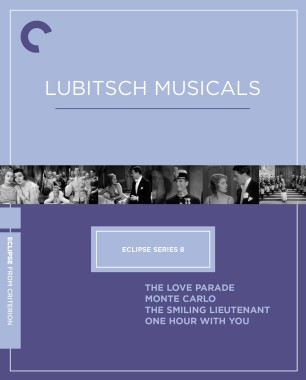Heaven Can Wait

Deceased playboy Henry Van Cleve (Don Ameche) presents himself to the outer offices of Hades, where he asks a bemused Satan for permission to enter through the gates of hell. Though the devil doubts that Henry’s sins qualify him for eternal damnation, Henry proceeds to recount a lifetime of wooing and pursuing women, his long, happy marriage to Martha (Gene Tierney) notwithstanding. Ernst Lubitsch’s Heaven Can Wait, nominated for Academy Awards for best picture and director, is an enduring classic that showcases the filmmaker’s trademark blend of wit, urbanity, and grace.
BLU-RAY SPECIAL EDITION FEATURES
- New 4K digital restoration by Twentieth Century Fox and the Academy Film Archive in collaboration with The Film Foundation, with uncompressed monaural soundtrack
- Conversation from 2005 between film critics Molly Haskell and Andrew Sarris
- Episode from 1982 of Creativity with Bill Moyers exploring screenwriter Samson Raphaelson’s life and career
- Audio seminar with Raphaelson and film critic Richard Corliss recorded at the Museum of Modern Art in 1977
- Home recordings of director Ernst Lubitsch playing the piano
- Trailer
- English subtitles for the deaf and hard of hearing
- PLUS: An essay by film scholar William Paul
Cover by Caitlin Kuhwald
BLU-RAY SPECIAL EDITION FEATURES
- New 4K digital restoration by Twentieth Century Fox and the Academy Film Archive in collaboration with The Film Foundation, with uncompressed monaural soundtrack
- Conversation from 2005 between film critics Molly Haskell and Andrew Sarris
- Episode from 1982 of Creativity with Bill Moyers exploring screenwriter Samson Raphaelson’s life and career
- Audio seminar with Raphaelson and film critic Richard Corliss recorded at the Museum of Modern Art in 1977
- Home recordings of director Ernst Lubitsch playing the piano
- Trailer
- English subtitles for the deaf and hard of hearing
- PLUS: An essay by film scholar William Paul
Cover by Caitlin Kuhwald

Cast
- Don Ameche
- Henry Van Cleve
- Gene Tierney
- Martha
- Charles Coburn
- Hugo Van Cleve
- Marjorie Main
- Mrs. Strable
- Laird Cregar
- His Excellency
- Spring Byington
- Bertha Van Cleve
- Allyn Joslyn
- Albert Van Cleve
- Eugene Pallette
- E. F. Strable
- Signe Hasso
- Mademoiselle
- Louis Calhern
- Rudolph Van Cleve
- Helene Reynolds
- Peggy Nash
- Aubrey Mather
- James
- Michael Ames
- Jack Van Cleve
Credits
- Director
- Ernst Lubitsch
- Produced by
- Ernst Lubitsch
- Screenplay
- Samson Raphaelson
- Based upon the play Birthday by
- Lazlo Bus-Fekete
- Director of photography
- Edward Cronjager
- Technicolor director
- Natalie Kalmus
- Music by
- Alfred Newman
- Editor
- Dorothy Spencer
- Art direction
- James Basevi
- Art direction
- Leland Fuller
- Set decorations
- Thomas Little
- Set decorations
- Walter M. Scott
- Costumes
- René Hubert
A scene from Heaven Can Wait





















